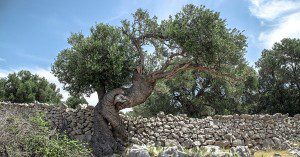This over at the Guardian is good, especially the ending,
In contrast, the logic of the romantic is that the centre of gravity in human life has to be outside of oneself to be meaningful. If it’s all about my choices, then human life has withered to the dimensions of my paltry imagination. Some will believe the control held out by autonomy to be liberating. I think it’s about trying to limit our exposure to that which is beyond our control. If I ever got so low as to be close to suicide, I don’t want anyone respecting my choice. I want them to come looking for me and to try and love or bully me out of it – even if I am lost to a settled decision for self-destruction.
I’m thinking, of course, of the news splashed all over twitter of a 17 year old girl choosing, and being granted the “right” to euthanasia as a “treatment” for ptsd and anorexia after being raped. Wes Smith over at NR concludes, “Once a society accepts killing is an acceptable way to eliminate human suffering, there is no limit as to the categories of suffering that will eventually justify eliminating the sufferer.”
Just so. It is a strange tangle of helplessness when death is the only way out. The person suffering feels helpless, drinking always great long draughts out of that well of sorrow and trauma that seems to have no end. But then the culture around her has some deep sense of helplessness—moral helplessness clearly, but also a greater helpless failure to find any meaning, any reason to keep going.
I’m sorry, but I have to go back to A Man Called Ove, which I think I mentioned I read/listened to this year. It has a rather strong theme of suicide and grief running through it, though handled in the lightest, fluffiest possible way. I liked it for a variety of reasons, but the main one was for the way that all the characters gradually changed and bent towards each other. Most of us think we want exciting things to happen, we plan take great life changing decisions to “impact” the community, the world, and the cosmos. But that’s not how life is, and why death is and always has been such a bad answer to pain.
In the beginning of Ove all the characters were like bowling pins—rigid, easily toppled, unbending, crashing noisily against each other. Ove in particular, committed as he was to doing away with himself, could not bend. It took the seemingly abrasive, though substantially very kind bashing of a small, persistent neighbor to make him bend rather than topple. In the end the rigid, pained, sorrowing neighbors had been transformed into something more like a close set grove of trees, bending and swaying in the wind, an intertwined root system holding them by some organic strength. It was a happy ending, thank heaven.
Only one of those images is Christian—the bowling pin one certainly not—though the church sometimes can feel like a bowling alley, which might be why some people feel like maybe they don’t want to go there. The tree though, not even a whole grove of trees but just one, leads the believer inexorably to the body, that even closer connection of limbs and organs. If one member is removed, the whole organism won’t make it, at least not without some grave intervention. When one person is cut off, going away by death or decision or just the complexities of life, the whole body suffers a wound.
You stand there in your pew, apparently isolated, sorrowing all by yourself, facing someone you can’t even see, feeling unconnected, and yet the true spiritual reality is very different. Though you stand and sit and kneel all by yourself, the truth is that you, if you belong to Jesus, are bound together with everyone else, fed by the same nurturing food and drink, the very same Spirit of the one you long to know. You are alive because he drank the cup of death all the way down to its dregs. He swallowed the helplessness of futility and loss and poured out in its place himself.
If this life is really all there is, then there really is no point. Might as well embrace the hopeless embrace of death. There aren’t enough fun experiences to stave off the inevitable or to mitigate against ordinary, let alone extraordinary pain.
But it’s not. There is life forever, a life that can begin now, a life that binds you not only to God, but to other people.













